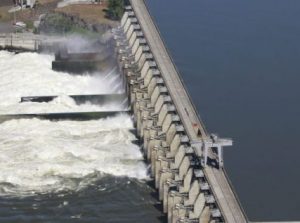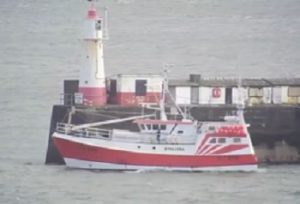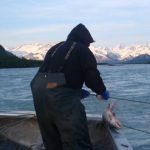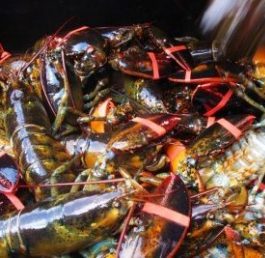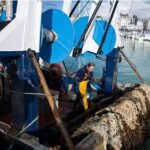Tag Archives: Bureau of Reclamation
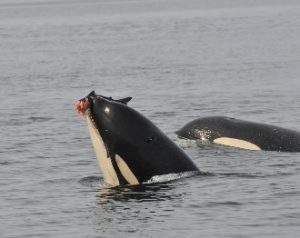
Four Washington Dams Again on Chopping Block
Farmers, fishermen and environmentalists sparred Thursday over a proposal to breach four dams on the Snake River to prevent extinction of salmon born there. The time could be ripe for the proposal long favored by environmentalists, with requirements under decades-running litigation dovetailing with measures called for by a state task force bent on saving endangered killer whales. The government is preparing to take an official position in February on whether breaching the four dams is necessary. >click to read< 20:31

Yurok Tribe and Commercial Fishing Group, PCFFA, File Suit to Save Klamath Salmon
This afternoon, the Yurok Tribe and the Pacific Coast Federation of Fishermen’s Associations (PCFFA) filed a lawsuit against the Bureau of Reclamation and the National Marine Fisheries Service in response to low flows and high salmon disease rates under the federal agency’s new management plan for the Klamath River. The groups are represented by the environmental law firm Earthjustice. >click to read< 08:39
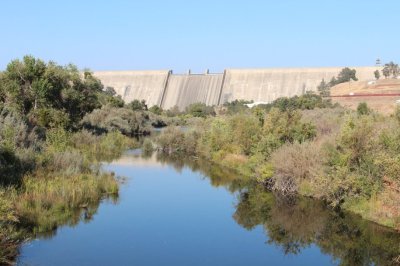
California water wars: Its fish vs big agriculture once again
Citing nine years of research and extensive public outreach, the Board announced the increased water flows were designed to “prevent an ecological crisis, including the total collapse of fisheries,” according to a statement from the Board. “The San Francisco Bay-Delta is an ecosystem in crisis. The Board’s challenge is to balance multiple valuable uses of water—for fish and wildlife, agriculture, urban, recreation, and other uses,” said State Water Board Chair Felicia Marcus. “Californians want a healthy environment, healthy agriculture, and healthy communities, not one at the expense of the others. That requires the water wars to yield to collective efforts to help fish and wildlife through voluntary action, which the proposed plan seeks to reward.” >click to read<10:39
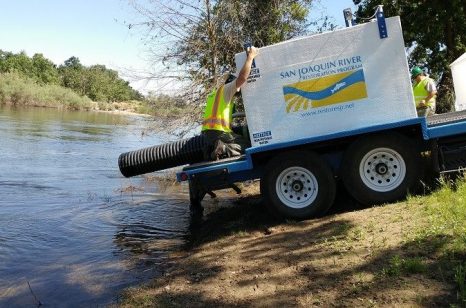
With a Lot of Help, Chinook Salmon Return to the San Joaquin River
In California’s Central Valley, dusty dry riverbeds fill with water that for decades has been diverted for farmers and cities. Hatchery-reared salmon – bred with taxpayer funds – are being reintroduced in hopes of rebooting ancient populations that disappeared in the 1940s, casualties of California’s ceaseless search for new water sources. The San Joaquin River, the state’s second largest, is primed for its comeback. After the Sacramento River, the San Joaquin is California’s most important river. It provides some of the state’s largest agricultural operations with water as it stretches north from Fresno before finally emptying into the Sacramento-San Joaquin River Delta – the source of drinking water for an estimated 25 million Californians. The process of damming, diverting and plumbing the 366-mile river for irrigation and urban water use leaves main portions of the river dry during parts of the year. Following the opening of Friant Dam in 1942, entrepreneurs gobbled up the river’s fertile wetlands and replaced them with crops and gravel mining operations. The dam was a boon to the already prospering agricultural region. But as water-intensive crops like almonds and pistachios went in, the native Chinook salmon disappeared. click here to read the article 17:25
Yurok Tribe Files Intent to Sue National Marine Fisheries Service and the Bureau of Reclamation
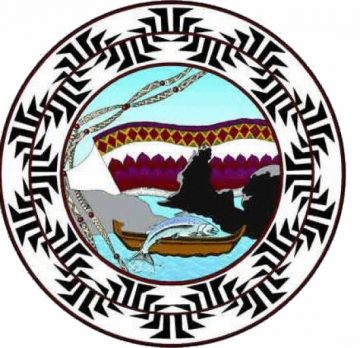 In response to massive fish disease outbreaks in back-to-back years on the Klamath River, the Yurok Tribe submitted a 60-day notice of intent to sue the National Marine Fisheries Service and the Bureau of Reclamation. “We cannot stand by and do nothing while our salmon hover over the brink of extinction,” said Thomas P. O’Rourke Sr., Chairman of the Yurok Tribe. “We will not continue to watch water managers jeopardize the fate of our fish and our river.” 91 percent of the juvenile, Klamath salmon were infected with a deadly parasite in 2015, as were a nearly identical number of fish in 2014. Given the nearly 100 percent mortality rate associated with the disease, approximately 90 percent of the Chinook salmon and likely an equal quantity of coho died in the main-stem Klamath River during those years, according to the notice. This year’s predicted adult salmon run is one of the lowest on record, which forced the Yurok Tribe to make a difficult decision to completely forgo all commercial fishing in 2016. Read the rest here 15:22
In response to massive fish disease outbreaks in back-to-back years on the Klamath River, the Yurok Tribe submitted a 60-day notice of intent to sue the National Marine Fisheries Service and the Bureau of Reclamation. “We cannot stand by and do nothing while our salmon hover over the brink of extinction,” said Thomas P. O’Rourke Sr., Chairman of the Yurok Tribe. “We will not continue to watch water managers jeopardize the fate of our fish and our river.” 91 percent of the juvenile, Klamath salmon were infected with a deadly parasite in 2015, as were a nearly identical number of fish in 2014. Given the nearly 100 percent mortality rate associated with the disease, approximately 90 percent of the Chinook salmon and likely an equal quantity of coho died in the main-stem Klamath River during those years, according to the notice. This year’s predicted adult salmon run is one of the lowest on record, which forced the Yurok Tribe to make a difficult decision to completely forgo all commercial fishing in 2016. Read the rest here 15:22
Responses to fishing crises differ, Bob Borck, FV Belle J II
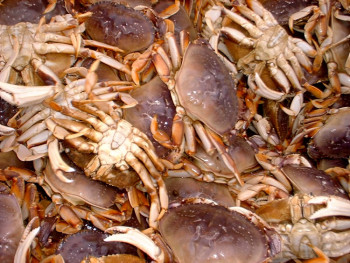 For some coastal residents, commercial fishing is in our blood. It’s how we support our families — producing healthful local food. Fishing is part of our economy and heritage. Today, California’s fishing communities face two crises. The first is the unprecedented closure of the crab fishery. We may or may not be able to fish for crab this season, depending on when our crab pass state tests. In the meantime, fishing families are suffering. The second crisis is the state of our salmon fisheries. The drought and the Bureau of Reclamation’s mismanagement of the Sacramento River, the backbone of California’s , have been disastrous for spawning salmon. Read the op-ed here 07:59
For some coastal residents, commercial fishing is in our blood. It’s how we support our families — producing healthful local food. Fishing is part of our economy and heritage. Today, California’s fishing communities face two crises. The first is the unprecedented closure of the crab fishery. We may or may not be able to fish for crab this season, depending on when our crab pass state tests. In the meantime, fishing families are suffering. The second crisis is the state of our salmon fisheries. The drought and the Bureau of Reclamation’s mismanagement of the Sacramento River, the backbone of California’s , have been disastrous for spawning salmon. Read the op-ed here 07:59
‘Ebola’ Level Threat To Northern California Salmon Forces Release Of More Water. Ebola level?
 Federal officials have released water reserves to combat the growing threat from a drought-fed parasite that a fisheries spokesman called the “Ebola” of salmon and which could result in a “die-off” to the state’s fragile salmon population. The Bureau of Reclamation began releasing additional water from PacifiCorp’s Iron Gate Dam Saturday morning because of an outbreak of the Ich parasite in Coho and Chinook salmon in the upper Klamath River. Read the rest here 16:45
Federal officials have released water reserves to combat the growing threat from a drought-fed parasite that a fisheries spokesman called the “Ebola” of salmon and which could result in a “die-off” to the state’s fragile salmon population. The Bureau of Reclamation began releasing additional water from PacifiCorp’s Iron Gate Dam Saturday morning because of an outbreak of the Ich parasite in Coho and Chinook salmon in the upper Klamath River. Read the rest here 16:45
Updated: Reclamation reverses course on water for Klamath River
 Water release from Trinity Reservoir will begin Saturday, Aug. 23, at 7 a.m.; Public urged to take safety precautions on or near the river while flows are high. The Bureau of Reclamation will release additional water from Trinity Reservoir to supplement flows in the lower Klamath River to help protect the Read more here 12:53
Water release from Trinity Reservoir will begin Saturday, Aug. 23, at 7 a.m.; Public urged to take safety precautions on or near the river while flows are high. The Bureau of Reclamation will release additional water from Trinity Reservoir to supplement flows in the lower Klamath River to help protect the Read more here 12:53
Bureau of Reclamation to reconsider Trinity-Klamath releases for salmon
Following several meetings with North Coast tribes and government officials, the federal agency that oversees water in Northern California’s Klamath Basin is taking another look at releasing water from Trinity Lake to prevent the spread of disease among salmon returning to spawn in drought conditions. Read more here 07:57
Conservationists challenge Obama’s Columbia salmon plan
Conservation groups and salmon advocates have challenged the Obama administration’s latest plan for making Columbia Basin dams safe for salmon. NOAA Fisheries NMFS said in a statement that the agency has made “clear and demonstrable progress in rebuilding salmon and steelhead runs throughout the Columbia Basin,” and it expects progress to continue. Read more here 11:12
Judge temporarily blocks increased Trinity River flows by Dan Bacher
A federal judge today granted the Westlands Water District and the San Luis and Delta-Mendota Water Authority a temporary restraining order (TRO) to block increased Trinity River flows through August 16. The Bureau of Reclamation was going to begin releasing the water from Trinity Reservoir starting today to avert a massive fish kill on the lower Klamath like the one that took place in September 2002, when over 78,000 fish perished due to an outbreak of disease in low, warm water conditions. more@dailykos
Editorial: Sound science? Maybe, but always read the fine print.
Spin is eternal. Always read the fine print. That’s the message that interested citizens should take from the Interior Department’s review of a scientific-integrity complaint by former Bureau of Reclamation official Paul Houser, a scientific-integrty officer who lost his job when he had the gall to do his job. continue reading Scientific integrity? It’s a fine slogan and guide, but it’s rarely the final word when it comes to government.
Seven US fisheries scientists have raised a formal complaint of political interference over salmon studies – complaint of scientific misconduct
The letter alleges that Klamath Basin area office manager Jason Phillips violated the agency’s scientific-integrity policy, adopted in 2011 as part of US President Barack Obama’s nationwide initiative to protect science from political interference. According to the letter, the scientists believe Phillips intended to shut down the research group — known as the Fisheries Resources Branch — believing that the team’s work on salmon and other fish contradicted the plans and findings of the US Fish and Wildlife Service (FWS) and the National Oceanic Atmospheric Administration (NOAA). Read more Read the original complaint






